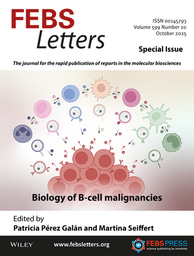Lessons from lockdown: moving meetings online

It seems like ages ago now – in the times before COVID – that the scientific community was grappling with its environmental conscience and budgetary constraints over whether there were too many meetings, too much travel. How do you preserve key elements of a conference like the networking and deep discussions between career stages when these events are not face-to-face? How do we balance carbon footprints with the opportunity to present at the ‘key’ conference in a field – moments that remain critical to tenure track checklists and early-career researcher progression? What can we do to be more inclusive – recognizing that not everyone has a travel budget or the time to be free of caring responsibilities to attend even if they wanted to? What is the right balance between accessibility of a virtual meeting and safeguarding all the great elements of many of these meetings – sharing of unpublished data and emerging stories?
It now seems moot – this virus and its impact forced a rapid change in our research culture. And not necessarily for the worse….
I was the organizer for the BSCB GenSoc UK Cilia Network Spring Meeting to be held in Edinburgh on 28 April 2020. We had chosen that date to bridge for the first time with the British Microtubule Meeting, the day before. Both were great national cytoskeletal and cell biology meetings with a significant overlap in audience, so this arrangement minimized travel (2-for-1) and hopefully would maximize cross-pollination between disciplines, bringing together structural biologists with cell signalling experts and geneticists. Registration early on suggested this was working: there were ~85 early-bird attendees, many of whom were attending both events. We had also discussed recording lectures, as we had the A/V support in place to easily do this, and sharing the talks on-demand to those who wanted to attend remotely. All very progressive – but nothing compared to what was to come…
It was clear in early March that the in-person meeting would be postponed, and we have a new date of 11 May 2021, in Edinburgh. However, my concern was about postdocs who would be on the job market or applying for fellowships this year, about the students applying to labs for postdocs as their next step, and about our new PIs in the UK Cilia community who had not yet been ‘introduced’. For all these researchers, the science could not wait another year. We needed to do something now.
All of our speakers were game to go online – as long as the event was live only, i.e. no recording. When we rapidly reached our self-imposed ‘cap’ of 125 attendees – a remnant of catering capacity – we realized the appetite was much larger and more international for great cilia science. So, we expanded registration to the free, open-to-all webinar (a morning and afternoon session) – and we ended up with ~400 registrants from around the world. A series of short talks (15 minutes + 5 minutes questions) on diverse topics, from various career stages and more was a format the audience seemed to love. The Q&A sessions were rapid fire, some of our speakers having ~30 questions lighting up the screen, from students through to experts – a real sign of engagement. What was phenomenal was that what we couldn’t get through live was answered by our speakers off-line, often with input from other established voices in the field. Our audience was amazing – so many people reached out to our speakers after their talks with more questions, collaborations and support. This type of feedback and exposure in a time of social distancing is priceless!
As many other meeting organizers are finding themselves in the same boat, I have some practical advice I can share about migrating a meeting on-line. (1) Don’t sweat the software. There are a lot of platforms that can be used. In the end, we went with one that rhymes with ‘Boom’ only because of its wide use already in the community. We haven’t looked back. (2) Think about format. What is important to your meeting – what do you want to protect? For us, it was about preserving the ethos of sharing unpublished data to stimulate discussions. Recording talks makes people nervous about doing this. Not recording and no on-demand viewing means you have the challenge of enabling equal access for a global audience. We had to make tough scheduling choices to allow speakers from Beijing to join which meant West Coast audiences suffered a very early start. (3) Be creative. It is hard to capture all elements of an in-person meeting in an on-line format. When it became clear this would be a recurring series of e-symposia, we didn’t feel the need to run ‘poster presentation’ sessions as we were hoping we could encourage some of these trainees to give talks instead. To help this, we have kept a uniform short talk structure meaning regardless of career stage everyone has equal podium time. Some very resourceful cilia students and postdocs ran a Zoom Happy Hour the day after the first symposium – this allowed the ‘peer–peer’ interactions a webinar format does not facilitate. (4) The double-sided sword of sponsorship. We were incredibly fortunate to have received sponsorship from the UK academic societies that allowed us to use funding flexibly to buy the webinar license. Beyond branding, they required nothing else. However, given the scope of our audience and success of the events, we have since been approached by companies and services asking to present. For the moment, we are discussing alternate funding models to preserve the autonomy of this series as it runs through the autumn, including repurposing unused grant travel budgets for 2020 and journal sponsorship.
Downsides? I have yet to find them. My need for perfectionism is slipping with this epidemic. ‘Working from home’ is a misnomer for many of us balancing science and home-schooling where in fact we are ‘at home doing what we can’. The slickness of an auditorium talk is not the same as one delivered from your make-shift office. But somehow the fact that organizers as well as each and every one of our speakers can pull off an e-symposium of this size and reach, in these crazy times with everything stacked against us (including dodgy WiFi signal and the chaos of small children) is really something. The fact that the science and the discussions continue through this time of isolation make all other concerns seem trivial.
And the audience wants more… We are running these events every fortnight (https://www.cilianetwork.org.uk/events/) until science returns to normal. Many of the summer and fall conferences have been cancelled so this series is proving critical for keeping the community connected. Each event is just over two hours, with six speakers from all over the world, all career stages and diverse cilia science. We will keep running the events as long as people keep volunteering to speak!
We are very grateful to our sponsors – the British Society for Cell Biology and the Genetics Society – for being so supportive and flexible to create these virtual events in these uncertain times. Although not the same as face-to-face conferences, online meetings are definitely filling a huge void in our ability to communicate and remain connected with the research community.
I do think they will be here to stay, in some format, when lockdown is lifted.
Top image of post: rob zs / Shutterstock.com





Join the FEBS Network today
Joining the FEBS Network’s molecular life sciences community enables you to access special content on the site, present your profile, 'follow' contributors, 'comment' on and 'like' content, post your own content, and set up a tailored email digest for updates.
Great sharing Pleasantine!
It is lovely to see that you and your team worked this out smoothly and efficiently...
You stimulated our motive to run this 2020 Congress of the Turkish Biochemical Society (supposed to be in Oct. 2020) online. Maybe you will be one of the speakers :-)
Congratulations and keep up the good work!
Ferhan Sagin
Big belated thanks Ferhan- if I can give you any tips, please just ask!